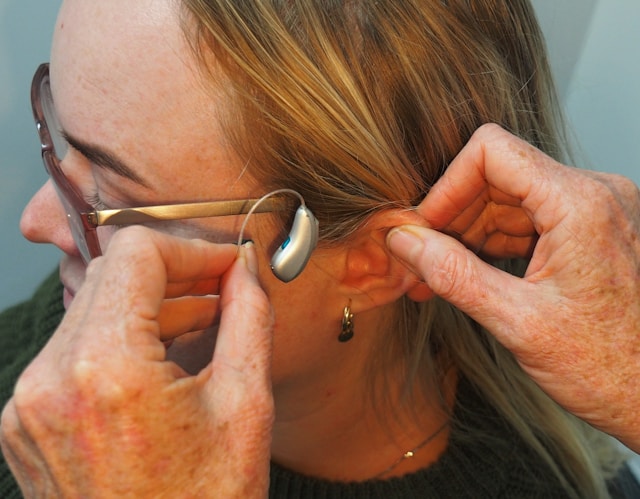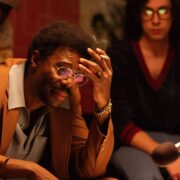The price of hearing

For a while now, particularly at parties, I’ve been finding it hard to make out what’s being said even from just across the table. Seated in front of a moving car, I also can’t quite follow the exchange among fellow riders. I hear the conversation but can’t quite comprehend it. That’s definitely not good.
I became aware of a friend’s similar condition—it easily takes one to know one, so to speak. She was becoming more and more withdrawn. When asked about the simplest thing she’d shake her head and answer safely, “I wouldn’t know.” One day we talked about it and agreed to see the same doctor.
I remember it was the same way with my eyes. It was only when I had myself tested that I realized my vision was no longer 20-20. I was so surprised when the correct lenses were put on me: suddenly, a much clearer new world! Until then I didn’t know what I had been missing—I was already in high school.
Anyway, my friend had gone ahead for the hearing checkup and seemed very pleased with the results. After our aqua exercise one morning, I noticed a marked change in her personality. She held her head high and looked us in the even. She was also participating much more actively in the conversation at our post-exercise breakfast.
Initial verdict
I lost no time and went for my own checkup. The initial verdict was that ears “looked normal,” but I was sent all the same for more intensive, practical testing.
“Does it run in the family?” I guess it does. My mom became functionally deaf in her 80s. She happened to be the only one in her family of diabetics who lived long enough (85) to lose her hearing.
Dad, who died at 91, never lost his, but most of his brothers became deaf in time. He said he sometimes wished he were, because people presumed everyone his age was deaf and spoke louder, which irritated him. He protected himself by stuffing his ears with cotton balls, even at home, because Mom would have the TV on too loud.
The test showed my hearing to be moderately impaired. I still can hear low-pitched voices, typically male voices, perfectly. The impairment is not from any infection or ear trauma—it’s aging. It was still left to me to decide whether to wear a hearing aid.
But how could I forget how my friend’s face had lit up once she herself began wearing one—claiming the distinction of first in our group? I decided to take advantage of the week-long trial for free.
When I asked the audiometrist for the price of the device lent for trial, I was mildly shocked—my friend, whose own impairment seemed worse than mine, had paid only half for hers. It turned out to be a different brand, but the only one available for trial. I went ahead and wore it, on the condition that I could also test others, when they became available.
I was instructed to wear it for two hours at night and at home. I didn’t notice any remarkable difference. The next day I was to wear it for four hours, again at night and at home. On the third day I wore it for six hours outside, some of the time at a busy restaurant where waiters kept singing happy birthday out of tune to celebrators. The hearing aid seemed only to make the noise less tolerable.
No remarkable difference
After the third day I decided to return it and test something I would be prepared to buy for its price. Actually, wearing it made no remarkable difference—maybe it takes getting used to. As happened, again, there was no other brand for trial, and no doctor on hand as well to listen to my trial experience. My new life would have to wait, and just as well: I have time to think things over.
After almost a month, I saw my friend again. She had just returned from a short trip abroad. I noticed something sticking out from the top tip of her ears, peeping out of her thinning dyed-dark hair. Obviously she had not placed her hearing aid properly. Each of the pair needs to be hooked securely, and invisibly, behind the ears.
I quickly realized its proper handling could itself be a problem for older people, especially in the beginning. That’s probably why many wearers lose interest after a while. Never mind the unsightliness, incorrect placement can affect the efficiency of the hearing aid. All things considered—the bother, the price, etc.—I decided to opt out, for now.
But as I continue researching, I’m discovering that new brands and types of hearing aid are a true marvel of technology. Some can be synchronized to your smart phone and adjustable to the conditions wearers find themselves in—at restaurants, at concerts, even inside a car, I suppose. A warning also comes on for recharging, and no more costly batteries to change periodically. No wonder hearing aids now cost a fortune.
I’ve been warned, however, that a hearing aid does not restore hearing as we knew it. Also, it is not a once-in-a-life time purchase, only good for up to five years, although that could be a lifetime at my age. INQ


















